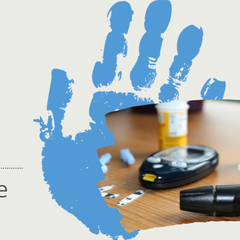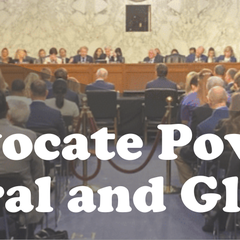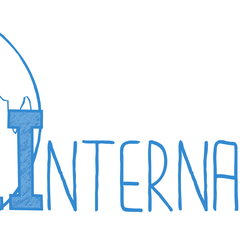
Calling for Empowered Implementation of Global Diabetes Coverage Targets
11 Jul 2022, 9:59 p.m. in #insulin4all USA, Global Stories, News & Statements by T1International
At the 75th World Health Assembly (WHA) of the World Health Organization (WHO), member states adopted the first ever ‘Global Diabetes Coverage Targets,’ meant to steer the course of diabetes diagnosis and treatment for the next 8 years.
By 2030, the WHO aims to see the following five targets achieved worldwide:
- 80% of people living with diabetes are diagnosed
- 80% have good control of glycaemia
- 80% of people with diagnosed diabetes have good control of blood pressure
- 60% of people with diabetes of 40 years or older receive statins
- 100% of people with type 1 diabetes have access to affordable insulin and blood glucose self-monitoring.
Feedback from T1International advocates around the world resulted in the addition of a footnote to the first target reading, "...Due to the potentially fatal consequences of delayed diagnoses...more efforts to establish earlier diagnoses of people with type 1 diabetes should be promoted worldwide." (See page 18 of the full document.)
You can read the WHO’s press release about the targets and their formation process and next steps here.
The targets are a step in the right direction. T1International is extremely excited to see the WHO and member states prioritizing diabetes. When asked what comes next, James Elliott, Project Manager (consultant) at the WHO stated, “We need to seize this moment. The world has said it is ready to work towards major improvements to the way diabetes is cared for globally. Let’s hold the world to it.”
Empowered Implementation
Targets are important, but an implementation plan is essential to produce real change. Indeed, we see an opportunity for our community to mobilize with concrete asks for action towards these goals. We asked T1International Global Advocates and members of the Technical Advisory Group of Experts on Diabetes (TAG-D), Daniela Rojas and Apoorva Gomber, to share their perspectives on how these targets can and should be achieved.
Apoorva: “Diabetes management is complex and multifaceted. When we talk about achieving global targets for access to equitable, comprehensive, affordable and quality treatment and care for people living with diabetes, we must not forget the diverse unique lived experiences that truly matter— voices at the grassroots. Implementation using a bottom-up approach will allow grassroots organisations and support groups to define their own solutions that fit their cultural context. The bottom line is to ensure equitable access to diabetes care irrespective of location and social determinants of health. Supporting grassroot organisations and groups to identify their unique challenges and work towards these targets will be a major milestone for the Global Diabetes Compact Forum.”
Daniela affirmed Apoorva’s focus on supporting the grassroots level, saying, “Daily diabetes management requires continuous access to treatment, multidisciplinary care and education. In most regions in the world, having access to all of those is far from the reality. Grassroots organisations have been making up for the lack of support from governments and health care systems by educating and supporting diabetes communities, and serving as a voice for their needs. ”
Daniela made it clear that it is the job of the WHO and its Global Diabetes Compact Forum to support these Grassroots organisations, saying, “Support from the Global Diabetes Compact will improve grassroots organisations’ ability to advocate, educate, and be active partners in achieving the targets.
Looking to the Future
While we are glad to see the footnote speaking to the importance of timely diagnosis for people with type 1 diabetes, we will continue to advocate for the target to be updated to 100% diagnosis of people with type 1 diabetes. We also note the need for a future target of 100% diagnosis for people with all forms of diabetes. We believe that if we are not aiming for 100% diagnosis, 100% access will be impossible.
Furthermore, while T1International is excited to support the achievement of these goals, especially that “100% of people with type 1 diabetes have access to affordable insulin and blood glucose self-monitoring,” it is important to note that we do not yet know how affordable will be defined. A non-governmental organization may define affordability differently from a pharmaceutical corporation, and a patient may have a different definition still. We need to have a clear, transparent definition of this term, affirmed by the global diabetes community, in order to understand, act on, and measure the targets.
Alongside the Global Diabetes Coverage Targets, T1International and its Key Volunteers will simultaneously fight to ensure that insulin and test strips are more affordable by pursuing its unified Global Advocacy Priority that the average combined monthly out-of-pocket cost of insulin and blood glucose testing supplies represents no more than 5% of median income in any given country for people with diabetes by 2025. One thing is clear - ethical patient engagement of people with diabetes will be critical to forming an effective implementation plan and ensuring its success.
We thank Daniela Rojas, Apoorva Gomber, and James Elliott for their contributions to this blog.










